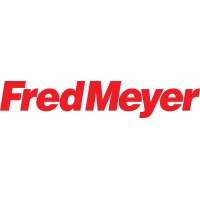
Air Products and Chemicals
𝗛𝗶𝗴𝗵 𝗙𝗮𝘀𝗵𝗶𝗼𝗻 𝗗𝗶𝘀𝗰𝗼𝘂𝗻𝘁 . 𝗪𝗲 𝗼𝗳𝗳𝗲𝗿 𝗔𝗶𝗿 𝗣𝗿𝗼𝗱𝘂𝗰𝘁𝘀 𝗮𝗻𝗱 𝗖𝗵𝗲𝗺𝗶𝗰𝗮𝗹𝘀 , 𝗕𝗲𝗮𝘂𝘁𝘆 , 𝗖𝗼𝘀𝗺𝗲𝘁𝗶𝗰 , 𝗣𝗲𝗿𝘀𝗼𝗻𝗮𝗹 𝗖𝗮𝗿𝗲 𝗳𝗼𝗿 𝗪𝗼𝗺𝗲𝗻, 𝗦𝗸𝗶𝗻 𝗖𝗮𝗿𝗲, 𝗙𝗮𝗰𝗲 𝗠𝗮𝘀𝗸 , 𝗠𝗲𝗻'𝘀 & 𝗪𝗼𝗺𝗲𝗻'𝘀 𝗰𝗹𝗼𝘁𝗵𝗲𝘀 & 𝘀𝗵𝗼𝗲𝘀 𝗡𝗲𝘄 𝗖𝗼𝗹𝗹𝗲𝗰𝘁𝗶𝗼𝗻𝘀 𝗼𝗻 𝗢𝗻𝗹𝗶𝗻𝗲 𝘀𝗽𝗲𝗰𝗶𝗮𝗹 𝗽𝗿𝗼𝗺𝗼 𝗦𝘁𝗼𝗿𝗲 !



𝗛𝗶𝗴𝗵 𝗙𝗮𝘀𝗵𝗶𝗼𝗻 𝗗𝗶𝘀𝗰𝗼𝘂𝗻𝘁 . 𝗪𝗲 𝗼𝗳𝗳𝗲𝗿 𝗔𝗶𝗿 𝗣𝗿𝗼𝗱𝘂𝗰𝘁𝘀 𝗮𝗻𝗱 𝗖𝗵𝗲𝗺𝗶𝗰𝗮𝗹𝘀 , 𝗕𝗲𝗮𝘂𝘁𝘆 , 𝗖𝗼𝘀𝗺𝗲𝘁𝗶𝗰 , 𝗣𝗲𝗿𝘀𝗼𝗻𝗮𝗹 𝗖𝗮𝗿𝗲 𝗳𝗼𝗿 𝗪𝗼𝗺𝗲𝗻, 𝗦𝗸𝗶𝗻 𝗖𝗮𝗿𝗲, 𝗙𝗮𝗰𝗲 𝗠𝗮𝘀𝗸 , 𝗠𝗲𝗻'𝘀 & 𝗪𝗼𝗺𝗲𝗻'𝘀 𝗰𝗹𝗼𝘁𝗵𝗲𝘀 & 𝘀𝗵𝗼𝗲𝘀 𝗡𝗲𝘄 𝗖𝗼𝗹𝗹𝗲𝗰𝘁𝗶𝗼𝗻𝘀 𝗼𝗻 𝗢𝗻𝗹𝗶𝗻𝗲 𝘀𝗽𝗲𝗰𝗶𝗮𝗹 𝗽𝗿𝗼𝗺𝗼 𝗦𝘁𝗼𝗿𝗲 !

The Kroger Co., together with its subsidiaries, operates as a food retailer in the United States. The company operates three formats of supermarkets: combination food and drug stores (combo stores), multi department stores, and price impact warehouse stores or marketplace stores. The combo stores operate as food stores; and provide pharmacies, food and organic sections, general merchandise, and pet centers, as well as perishables, such as seafood and organic produce. The multi department stores offer general merchandise items, such as apparel, home fashion and furnishings, electronics, automotive, toys, and fine jewelry. The combo and multi department stores also have fuel centers. The price impact warehouse stores offer grocery, health, and beauty care items, such as meat, dairy, baked goods, and fresh produce. The Kroger Co. also manufactures and processes food for sale in its supermarkets. In addition, the company operates convenience stores, which offer an assortment of staple food items and general merchandise, as well as gasoline; and fine jewelry stores. As of August 29, 2007, it operated approximately 2,500 supermarkets and multi-department stores in 31 states; and approximately 750 convenience stores and 650 supermarket fuel centers. The Kroger Co. was founded in 1883 and is based in Cincinnati, Ohio.less
Security & Compliance Standards Overview












No incidents recorded for Air Products and Chemicals in 2025.
No incidents recorded for Fred Meyer in 2025.
Air Products and Chemicals cyber incidents detection timeline including parent company and subsidiaries
Fred Meyer cyber incidents detection timeline including parent company and subsidiaries
Last 3 Security & Risk Events by Company
Angular is a development platform for building mobile and desktop web applications using TypeScript/JavaScript and other languages. Prior to versions 19.2.16, 20.3.14, and 21.0.1, there is a XSRF token leakage via protocol-relative URLs in angular HTTP clients. The vulnerability is a Credential Leak by App Logic that leads to the unauthorized disclosure of the Cross-Site Request Forgery (XSRF) token to an attacker-controlled domain. Angular's HttpClient has a built-in XSRF protection mechanism that works by checking if a request URL starts with a protocol (http:// or https://) to determine if it is cross-origin. If the URL starts with protocol-relative URL (//), it is incorrectly treated as a same-origin request, and the XSRF token is automatically added to the X-XSRF-TOKEN header. This issue has been patched in versions 19.2.16, 20.3.14, and 21.0.1. A workaround for this issue involves avoiding using protocol-relative URLs (URLs starting with //) in HttpClient requests. All backend communication URLs should be hardcoded as relative paths (starting with a single /) or fully qualified, trusted absolute URLs.
Forge (also called `node-forge`) is a native implementation of Transport Layer Security in JavaScript. An Uncontrolled Recursion vulnerability in node-forge versions 1.3.1 and below enables remote, unauthenticated attackers to craft deep ASN.1 structures that trigger unbounded recursive parsing. This leads to a Denial-of-Service (DoS) via stack exhaustion when parsing untrusted DER inputs. This issue has been patched in version 1.3.2.
Forge (also called `node-forge`) is a native implementation of Transport Layer Security in JavaScript. An Integer Overflow vulnerability in node-forge versions 1.3.1 and below enables remote, unauthenticated attackers to craft ASN.1 structures containing OIDs with oversized arcs. These arcs may be decoded as smaller, trusted OIDs due to 32-bit bitwise truncation, enabling the bypass of downstream OID-based security decisions. This issue has been patched in version 1.3.2.
Suricata is a network IDS, IPS and NSM engine developed by the OISF (Open Information Security Foundation) and the Suricata community. Prior to versions 7.0.13 and 8.0.2, working with large buffers in Lua scripts can lead to a stack overflow. Users of Lua rules and output scripts may be affected when working with large buffers. This includes a rule passing a large buffer to a Lua script. This issue has been patched in versions 7.0.13 and 8.0.2. A workaround for this issue involves disabling Lua rules and output scripts, or making sure limits, such as stream.depth.reassembly and HTTP response body limits (response-body-limit), are set to less than half the stack size.
Suricata is a network IDS, IPS and NSM engine developed by the OISF (Open Information Security Foundation) and the Suricata community. In versions from 8.0.0 to before 8.0.2, a NULL dereference can occur when the entropy keyword is used in conjunction with base64_data. This issue has been patched in version 8.0.2. A workaround involves disabling rules that use entropy in conjunction with base64_data.